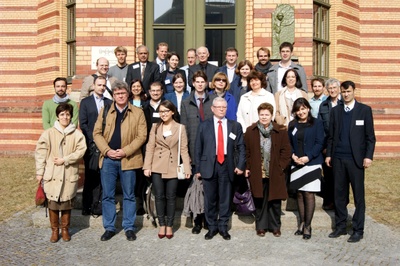Capacity Building Workshop for Regional Scientists
Turn Down the Heat III: Regional Analysis (MNA/LAC/ECA), The Case for Resilience
March 11-13, 2014
Potsdam Institute for Climate Impact Research (PIK) Potsdam, Germany
The report, “Turn Down the Heat III: Regional Analysis (MNA/LAC/ECA) – The Case for Climate Resilience”, is the third report in the World Bank series called “Turn Down the Heat.” Much like the second report, this phase examines the biophysical impacts of climate change under different warming scenarios (0.8°C, 2°C, and 4°C), while also considering scientifically-derived development impacts in order to gain a better understanding of vulnerability to climate change in critical regions. By utilizing 5 different GCMs from CMIP5 datasets; scientists were able to make the most up to date and accurate projections of temperature and precipitation change, heat extremes, aridity index, and sea-level change. These projections were then used to address questions related to timing, scale, and potential tipping point scenarios as well as uncertainties, and an indication of the significance and likelihood of their occurrence. The analysis will also include a consideration of social vulnerabilities as a consequence of climate change, based on a review of the literature.
The regional analyses presented at this workshop focus on agriculture, water security, sea-level rise, and heat waves in the Middle East and North Africa; and the agriculture-water-energy nexus in the Western Balkans/Central Asia as well as forests in Russia.
Objective:
The objective of this workshop is to share science-based evidence of the report, including methodology, and scientific modeling, and data that project timing, onsets, and uncertainties of climate change impacts, among other factors, with regional scientists. Regional scientists’ technical contributions may also help refine PIK’s preliminary findings.
Participants will:
- Understand the GCMs from CMIP5 / ISI-MIP
- Understand the methodology behind the ISI-MIP approach and its main results
- Understand the latest developments in climate change impact modeling, e.g. regarding sea-level rise, dynamic global vegetation modeling, and hydrological modeling
- Translate the science-based evidence for their own regional research and policies
Agenda, Presentations and additional Information
(background Papers for the Presentations)
Contact: Christopher Reyer






